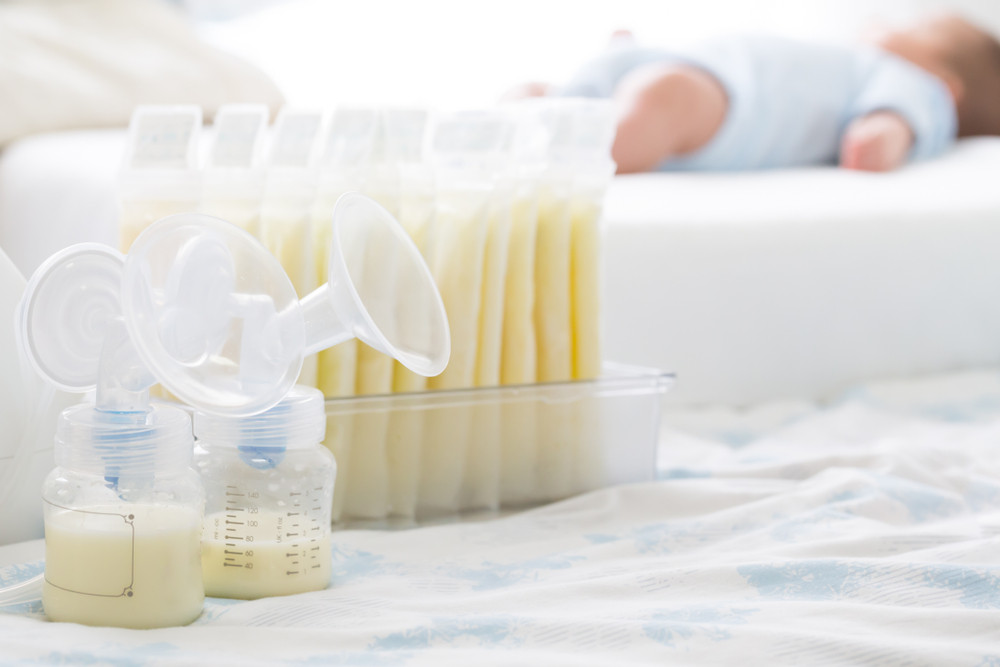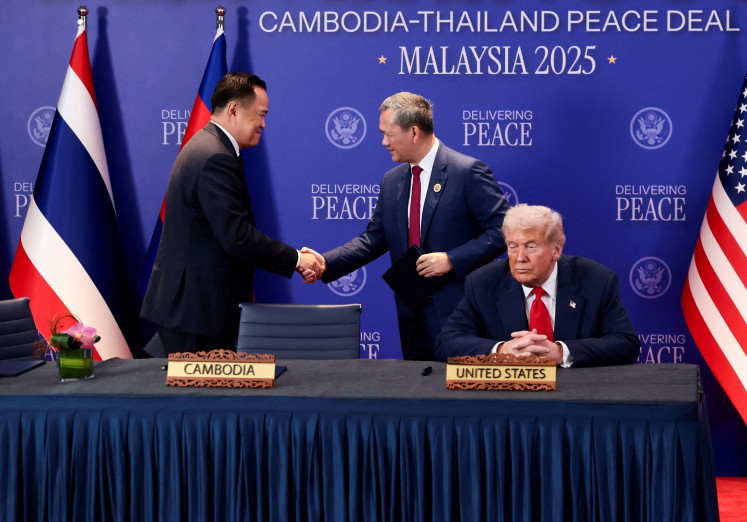Popular Reads
Top Results
Can't find what you're looking for?
View all search resultsPopular Reads
Top Results
Can't find what you're looking for?
View all search resultsTime to stop dangerous marketing of infant formula
Formula milk companies, powered by enormous budgets, continue to disregard international recommendations and run advertising that routinely mischaracterizes scientific findings.
Change text size
Gift Premium Articles
to Anyone
A
s societies, we are failing to protect children and families from the marketing of products that undermine their health and development. One of the most egregious examples of this is the aggressive promotion of commercial milk formula for babies and young children.
The impact of formula milk marketing is different from that of everyday items like shampoo, shoes, or refrigerators. The cynical marketing tactics used to push milk formula drives over-consumption, discourages breastfeeding, undermines mothers’ confidence, and exploits parents’ instinct to do the best for their children.
Formula milk marketing represents one of the most underappreciated risks to the health of infants and children. But while exclusive breastfeeding for babies 6 months and younger has increased only marginally over the past two decades, the sales of formula milk have nearly doubled. Scaling up breastfeeding could prevent an estimated 800,000 deaths of children under the age of five and 20,000 breast cancer deaths among mothers each year.
In the wake of lawsuits and government investigations, coupled with a general decline of breastfeeding globally, the World Health Assembly called for countries to regulate these promotional activities, and in 1981 adopted the International Code of Marketing of Breast Milk Substitutes. The code addresses such issues as advertising to the public, retail promotions, marketing in health care systems, and labelling.
Four decades later, many of the same egregious practices continue to occur throughout the world – now, turbo-charged by social media. Despite the code and subsequent resolutions, formula milk companies, powered by enormous budgets, continue to disregard international recommendations and run advertising that routinely mischaracterizes scientific findings.
Some of the false claims used by formula milk companies include: 1) formula products with added ingredients improve brain development and immunity formula products are needed after 12 months of age; 2) breast milk is inadequate for the nutrition of older infants and children; 3) formula keeps babies fuller for longer and therefore helps them sleep, that the quality of breast milk declines with time.
These are all untrue. They hurt children, and they hurt mothers.
A new study from WHO and UNICEF has systematically identified examples of this from around the world, after conducting research in Bangladesh, China, Mexico, Morocco, Nigeria, South Africa, the United Kingdom, and Vietnam.
Examples include:
* Baby clubs: Organized and managed by formula milk companies (sometimes through front groups), which offer mothers gifts and discounts, information on pregnancy and birth, and access to “carelines” which provide 24/7 “support and advice” for ailments, including COVID-19.
* Pain point marketing: A common but often subtle marketing scheme that aims to convince potential customers that they have a problem which can be solved by purchasing a product. There has been a rise in marketing for “specialized” and “comfort” milks that make bold claims to solve common infant ailments and behaviors such as colic, reflux and crying, despite insufficient evidence that they are effective.
* Targeting health workers: The systematic targeting of health professionals and clinics, and hospitals by industry to encourage them to promote formula milk products. Sponsorship, training activities and gifts are used - including offers of cash or commissions in some cases – to influence health workers’ practices and recommendations.
Our multicountry study found that more than half of the women surveyed had been exposed to formula milk marketing, and in some countries it was as high as 97 percent.
Of course, formula milk has its place for mothers and parents who are not able to breastfeed for a host of reasons, including a lack of support by social and health systems. It is formula milk marketing, not the product itself, that disrupts informed decision-making and undermines breastfeeding and child health.
It is time to stop the unethical marketing of formula. We call on governments to enact and enforce legislation that is aligned with the Code. We call on health professionals and their associations to protect the integrity of science and the use of their endorsements only for public good. We call on investors to insist on ethical business practices. And we call on social media platforms to reject practices that undermine children’s health.
Nelson Mandela once said that “there can be no keener revelation of a society’s soul than the way in which it treats its children.” The marketing of infant formula is following the playbook of the marketing of other products such as tobacco, junk food, sugary beverages, and gambling.
It is time to stop prioritizing corporate profits over child health. Stop the unethical marketing of formula milk. Our children are worth it.
***
Helen Clark is a former New Zealand prime minister and administrator of the United Nations Development Program. Tedros Adhanom Ghebreyesus is World Health Organization director general.











